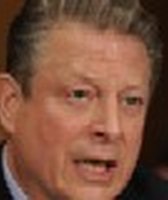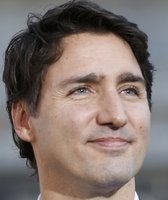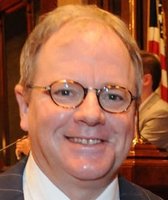Get PolitiFact in your inbox.
Donald Trump and Hillary Clinton have both begun to receive intelligence briefings from security experts as they prepare to potentially become commander in chief. Trump turned the briefings into a point of controversy during MSNBC’s Commander-in-Chief Forum.
When moderator Matt Lauer asked Trump about whether any information in his intelligence briefings had shocked him, Trump said yes. "What I did learn is that our leadership, Barack Obama, did not follow what our experts and our truly -- when they call it intelligence, it's there for a reason -- what our experts said to do," he said.
Later on, Trump argued that security experts weren’t happy with the current administration’s strategy. "I could tell you -- I have pretty good with the body language -- I could tell they were not happy. Our leaders did not follow what they were recommending."
After the forum ended, pundits were skeptical that the briefings actually happened as Trump described.
Fareed Zakaria, host of CNN’s Fareed Zakaria GPS, said that Trump was being untruthful. "The briefings are intelligence. They are not policy conclusions. It's remarkable that he would say that," he noted.
On the same program, Mike Rogers, the former House intelligence committee chairman and a Trump surrogate, agreed that it would be strange if the briefers had done what Trump said. "They never come out and say, ‘We think you should do this.’ That's not their place."
Bob Beckel, a liberal political commentator and former Defense Department official under the Carter administration, simply laughed and exclaimed that Trump "doesn't know what he is talking about."
The next day, Clinton decried Trump’s comments, claiming that they were "totally inappropriate and undisciplined." Trump’s campaign did not respond to requests for comment.
We don’t know what was in those intelligence briefings. But we were interested in exploring their nature and role.
The point of the briefings
The tradition of giving intelligence briefings to presidential candidates goes back more than 60 years. Back in 1952, Harry Truman ordered the CIA to brief candidates Dwight Eisenhower and Adlai Stevenson on pressing security issues in order to better prepare them for the presidency.
The briefings are conducted by the Office of the Director of National Intelligence. The advisers are selected by the director of national intelligence, then are sent by the White House to the candidates. The information presented in the briefings is classified, but it’s also much less detailed than the briefing a sitting president would receive.
The majority of security and government analysts and experts we talked to agree it’s highly unlikely these security advisers would voice doubts about a sitting president’s strategy.
Michael O’Hanlon, a senior fellow in foreign policy at the Brookings Institution, said that intelligence briefings are meant to be purely informational and wouldn’t offer a judgment on a current president’s approach to foreign policy. (O’Hanlon serves as a minor voluntary adviser to the Clinton campaign.)
"They would rarely even grade specific policies. They would generally focus on specific conditions and circumstances and trends around the world today," he told us.
Gary Schmitt, co-director of the Marilyn Ware Center for Security Studies at the right-leaning American Enterprise Institute, stressed that it’s normal for advisers to disagree with the White House, but agreed with other experts that Trump’s claim seemed outlandish.
"The idea that briefers ... would risk their professional careers and reputations by 'showing any leg' on policy disputes is about as likely as me running across the Abominable Snowman tonight in my backyard," he said.
Another expert went further and called the whole debate "preposterous." John Pike is the director of Globalsecurity.org, a website focusing on international security issues.
"The intelligence community is not in the business of proposing courses of action -- they describe the world as it is, and let the policy people address issues of the world as it ought to be," he said. "So the notion that his briefers were secretly signalling to Trump their displeasure with Obama does a disservice to the intelligence profession."
Experts also cast doubt on Trump’s claim that he could have read his advisers’ body language. Lawrence Korb, a senior fellow at the left-leaning Center for American Progress and former assistant secretary of defense under the Reagan administration, told us that the claim was "absurd."
"These advisers are like stone. They come in, they present the facts and the situation, and they leave," he argued. "Even when they’re briefing someone in government, they have to be very careful and neutral, to say nothing of briefing a candidate who’s not in office yet."
Lance Janda, professor and chair of social sciences at Cameron University, said that Trump may have arrived at his claim by asking speculative questions about the briefers’ opinions on specific policies. However, he reiterated that they would not normally offer opinions on the president’s strategy.
Obama’s relationship with his advisers
Nevertheless, Obama has made decisions against the advice of his generals and advisers on multiple occasions. A Washington Post article explored how Gen. Lloyd Austin advised Obama to leave 24,000 troops in Iraq in 2010 instead of pursuing a complete withdrawal. The president decided to go ahead and withdraw all forces from the country.
Obama’s critics also frequently point to his refusal to commit direct combat troops to Iraq and Syria as an example of poor judgement. For example, he rejected Gen. Austin’s recommendation that the United States bring a "modest contingent" of U.S. troops to Iraq to help fight ISIS, and instead decided in favor of a campaign focusing on aerial bombardment and training local allies.
However, experts told us that Obama generally has a good relationship with his advisers. "I know of no broad-based dissent from within the advisory ranks," O’Hanlon told us.
They also emphasized that some amount of disagreement between the civilian leadership and the military is normal and even healthy. Pike told us that the entire idea of having a commander-in-chief is to maintain civilian control over military decisions.
Our Sources
Email interview with Gary Schmitt, co-director of the Marilyn Ware Center for Security Studies at the American Enterprise Institute, September 8, 2016.
Email interview with John Pike, director of globalsecurity.org, September 8, 2016.
Email interview with Michael O’Hanlon, senior fellow at the Brookings Institution, September 8, 2016.
Email interview with Lance Janda, professor and chair of social sciences at Cameron University, September 8, 2016.
NBC News, "What really happened at Donald Trump's intelligence briefing," September 8, 2016.
Phone interview with Lawrence Korb, senior fellow at the Center for American Progress, September 8, 2016.
Politico, "Clinton calls Trump's intelligence briefing readout 'totally inappropriate’," September 8, 2016.
The Washington Post, "Clinton and Trump will soon receive classified briefings. Here’s how that works," July 29, 2016.
The Washington Post, "Obama vs. the generals," September 15, 2016.
Time.com, "Read Hillary Clinton and Donald Trump’s remarks at a military forum," September 7, 2016.
CNN transcripts, "CNN transcripts for September 7, 2016,", accessed September 8, 2016.











































